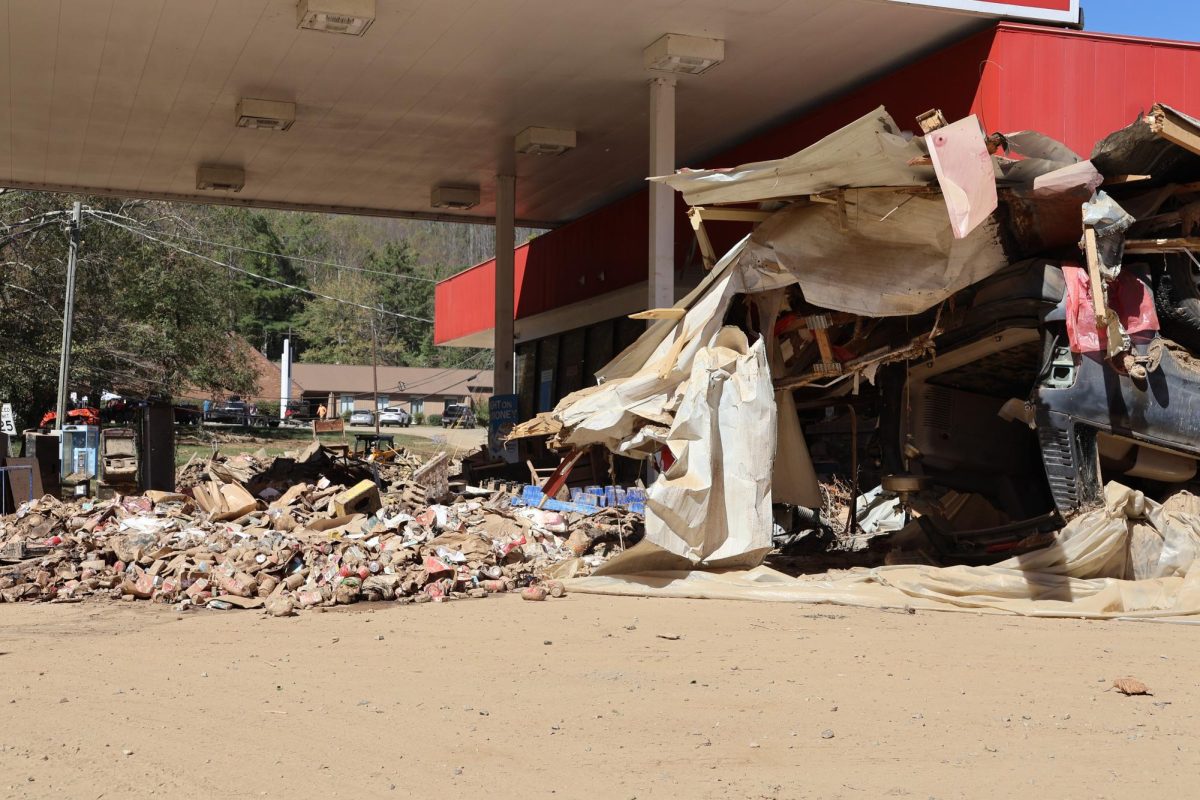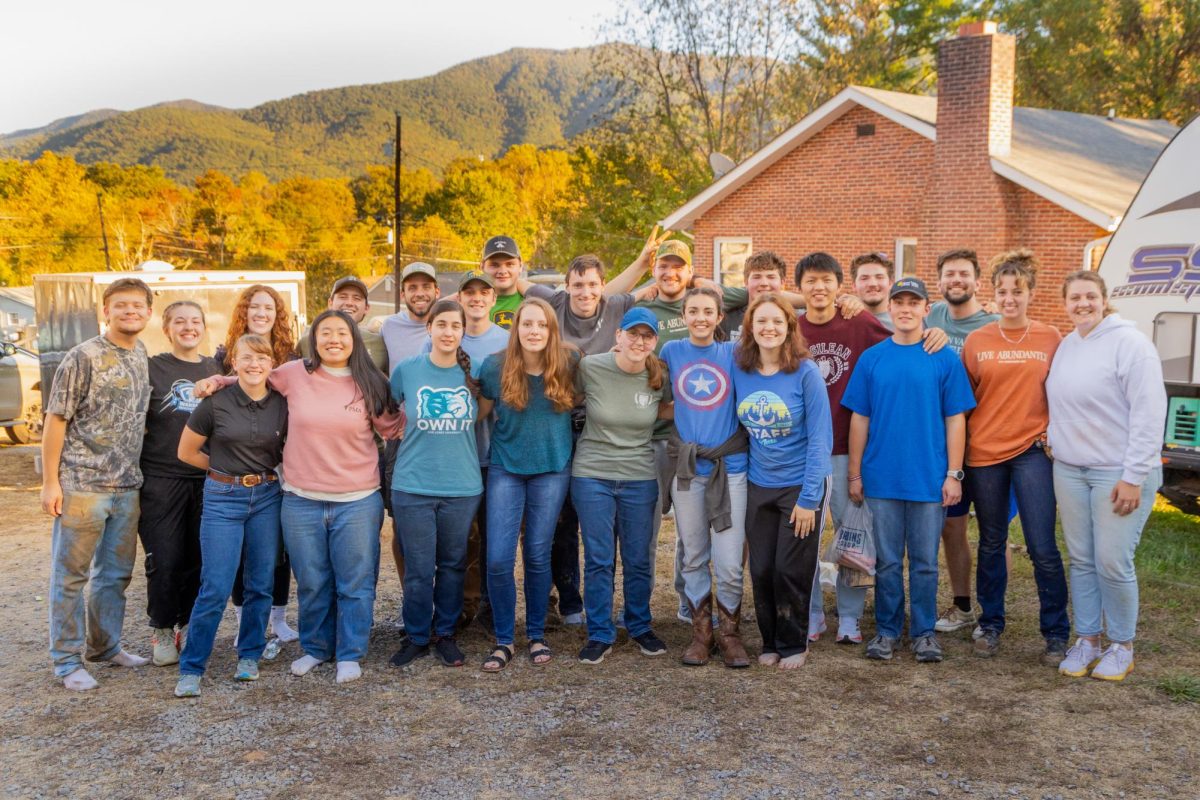Strips of saturated dry wall hung from the remains of the ceiling. Standing in the foyer of a duplex in Swannanoa, I could see the highway outside through what used to be solid walls. All that remained of a recently remodeled home were the wall studs and a brick fireplace. Any sign of life had been gutted and tossed into a street dumpster, rendered worthless by Hurricane Helene’s violent winds and the nine feet of standing water she left the house submerged beneath.
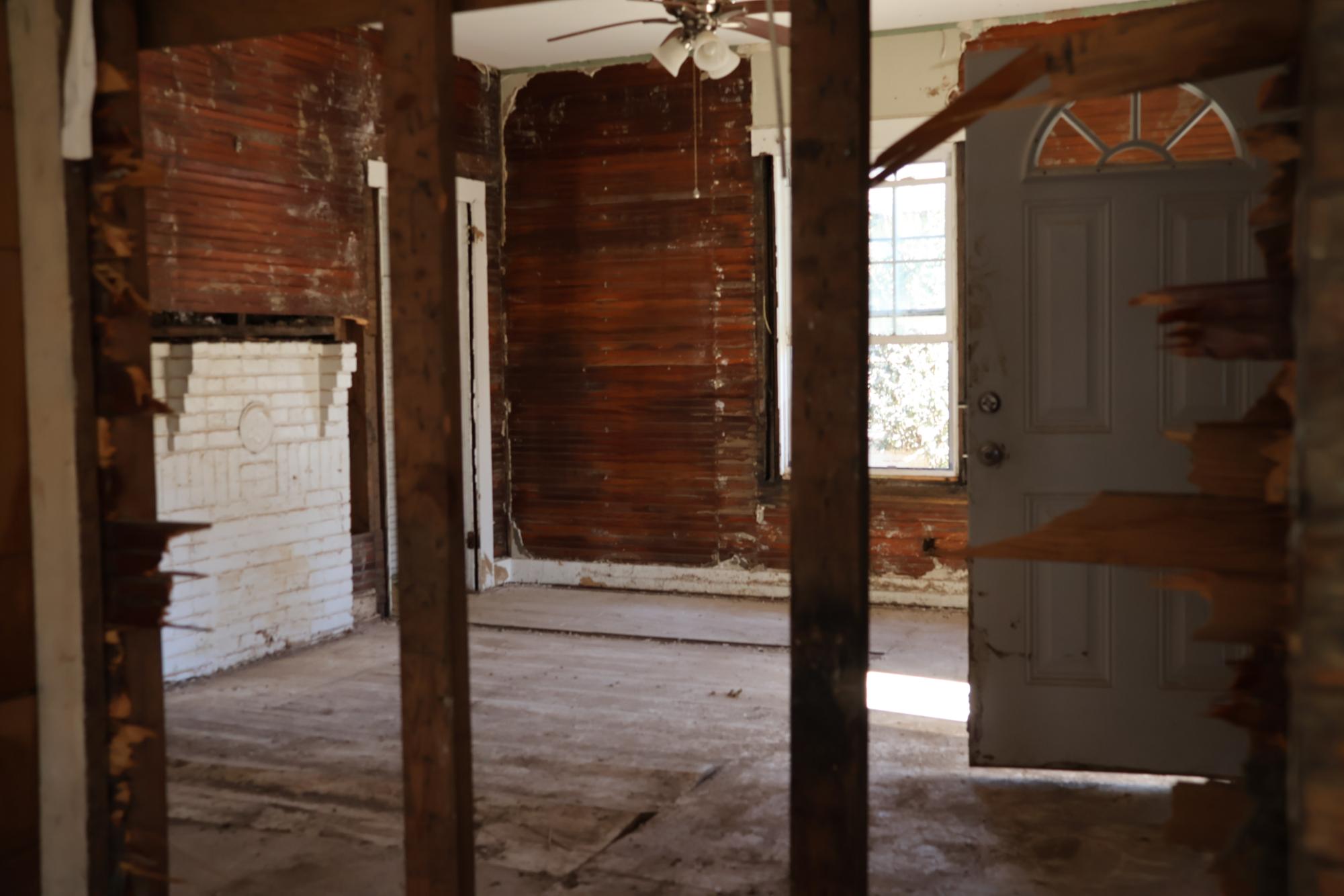
This is just one of countless scenes of destruction in the Asheville area of North Carolina. During homecoming weekend, Oct. 11 and 12, more than 20 Bob Jones University students and Student Life employees volunteered at multiple locations in Western North Carolina, loading trucks and distributing supplies.
The extent of the surrounding damage was shocking, perhaps because one simply does not expect the mountains of North Carolina to suffer the effects of a hurricane as severely as oceanfront areas like Florida.
Power lines snapped in half. Railroad tracks warped and covered by debris. An entire gas station sucked into a sinkhole. A single abandoned tennis shoe visible against the backdrop of the general wreckage. A litter of abandoned kittens. Cadaver dogs barking in the background.
Asheville especially sustained widespread devastation, leaving thousands without running water indefinitely. Many citizens have begun digging their own wells out of desperation. Most are still without power or heat, and this causes great anxiety with the onset of winter. Nearly 30 people were still missing one month after Helene struck, Sept. 26-27. Residents are tired and frustrated. Simply not knowing what each hour will bring has grown exhausting, and the survivors have now lived under these conditions for weeks.
But these people are not totally without hope.
The BJU group served at several locations, including Excel College in Black Mountain, North Carolina. This area is suspected to have sustained the worst flooding in the state with entire neighborhoods swept away and mountain roads washed out.
Josh, a retired military officer from Charlotte, had been volunteering at the college for two weeks and intended to stay at least one more. He heard about their relief efforts through Facebook and was eager to help in any way he could. Josh was part of a search and rescue team who have been taking lists of missing people into the mountains, finding them, and providing them with available supplies.
During his time volunteering, Josh encountered volunteers from across the country, including California, and even some from Canada. Many of them are people who have experienced natural disasters in their own homes, and now they want to return the favor of aid that so many have paid them before.
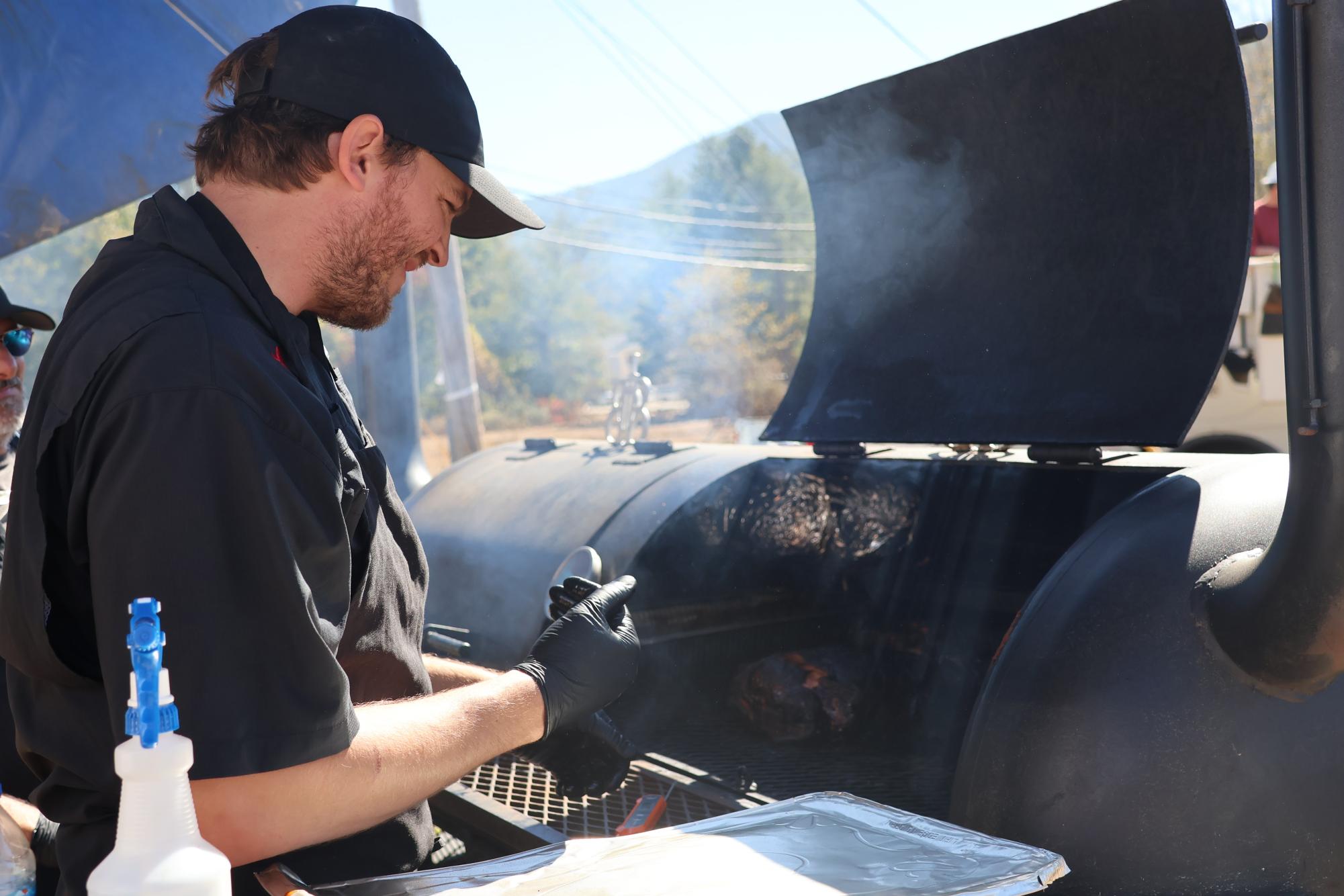
Several food truck businesses collected donations, pooled resources and cooked meals to try to relieve some stress from those already struggling to get by. Skipp is just one of many ordinary people who have sacrificed their time to provide free food for anyone in the area, whether it be civilians or working linemen.
Near Swannanoa Baptist Church, where another part of the BJU group served, Skipp and some of his friends set up tents and tables, offering “free food, water, and hugs.” They receive nothing from this; they aren’t a non-profit organization set up to assist others. They simply want to help. The group of friends said they’d served approximately 1,500 meals since Helene.
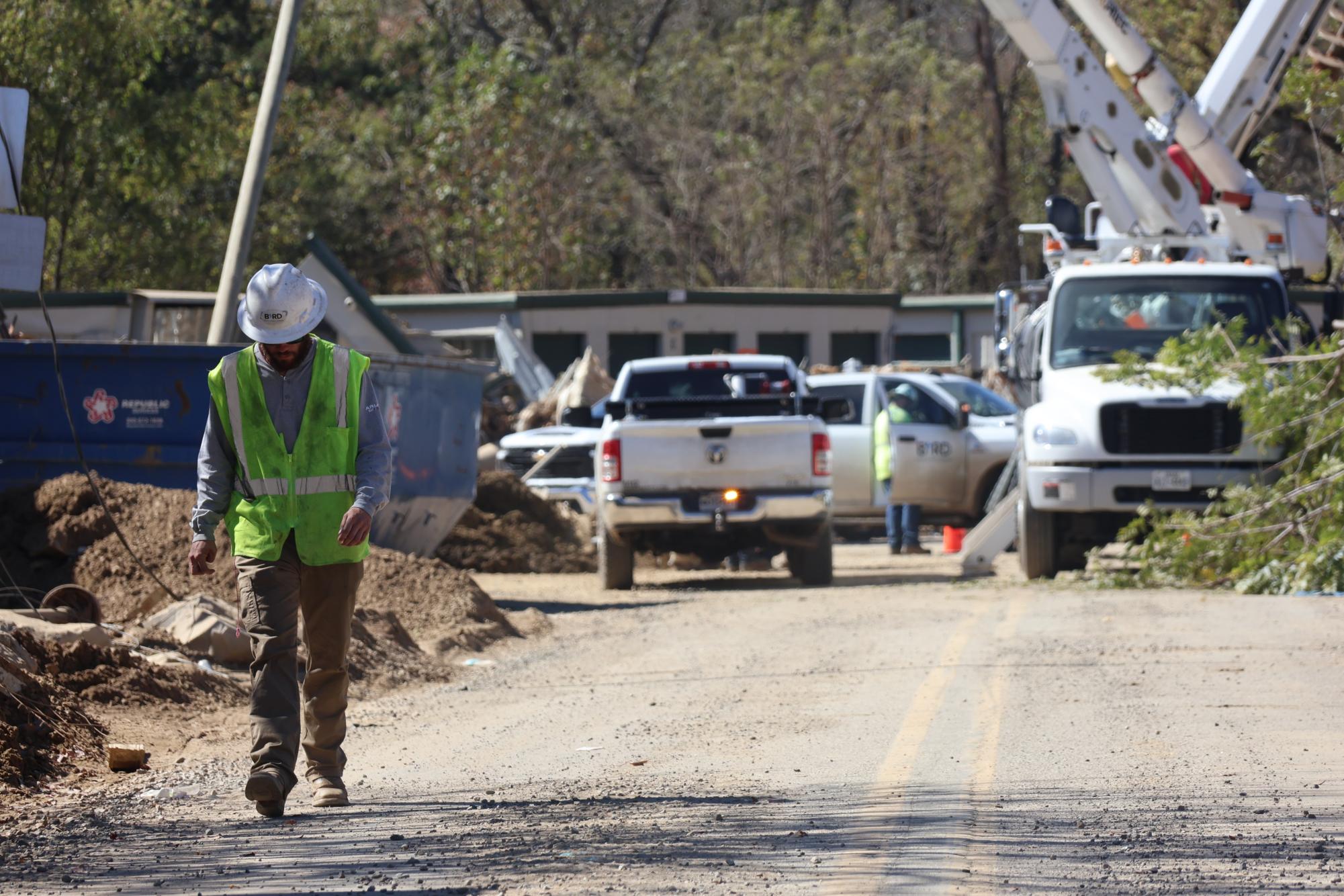
One man, probably in his late twenties, lost his home completely. He has gotten most of his meals from the group at Swannanoa since the storm, and their generosity has greatly encouraged him. He told me his story as he sat in the shade of a tent, eating one of the many meals that he has had to eat from donations and volunteer food trucks.
“The storm came through like a tidal wave,” he said. “Completely wiped out my place. But these people… this has restored some of my faith in humanity.”
Skipp said the volunteers desire no credit. He instead asked a question: “What do you do with the news that you hear? Do you absorb it just for entertainment? Or do you take what you hear and use it to help people?”
While it seems daunting, aiding in relief missions involves simply investigating where and when help is needed and then actually doing it.
The volunteers from BJU served at three area ministries. Working at Cornerstone Baptist Church included distributing supplies and cleaning the church; the work at Excel College focused on unloading trucks of supplies; and those at Swannanoa Baptist Church assisted in organization of supplies and debris cleanup at members’ houses.
One student, Mary Claire Woodfin, a freshman nursing major, said of her own experience on the trip, “We aren’t professional landscapers, but God chose us to be the ones to serve and pave a way for people to be ministered to. This reminded me of how sweet it is to serve.”
Many of the survivors in North Carolina that I spoke with feel that they have been largely overlooked by the national news. With stories about presidential candidates taking precedence over the nearly 100 lives lost in their communities, the people are grateful for anyone to tell their stories and make their voices heard.
While many of the victims of Helene feel lost among the faceless statistics, they are not forgotten. Neighbors and strangers alike have rallied and demonstrated a love for humanity that Christians should always display.
Although it was heartbreaking to witness what the people in the Asheville area have gone through in recent weeks, it was also a great encouragement to see them share what they still had with complete strangers. People who had lost nearly everything offered to share simple meals they had cooked in their front yards. Observing the generosity of others was an exhortation to me to grow in my own empathy for and generosity towards those experiencing personal loss on such a large scale.
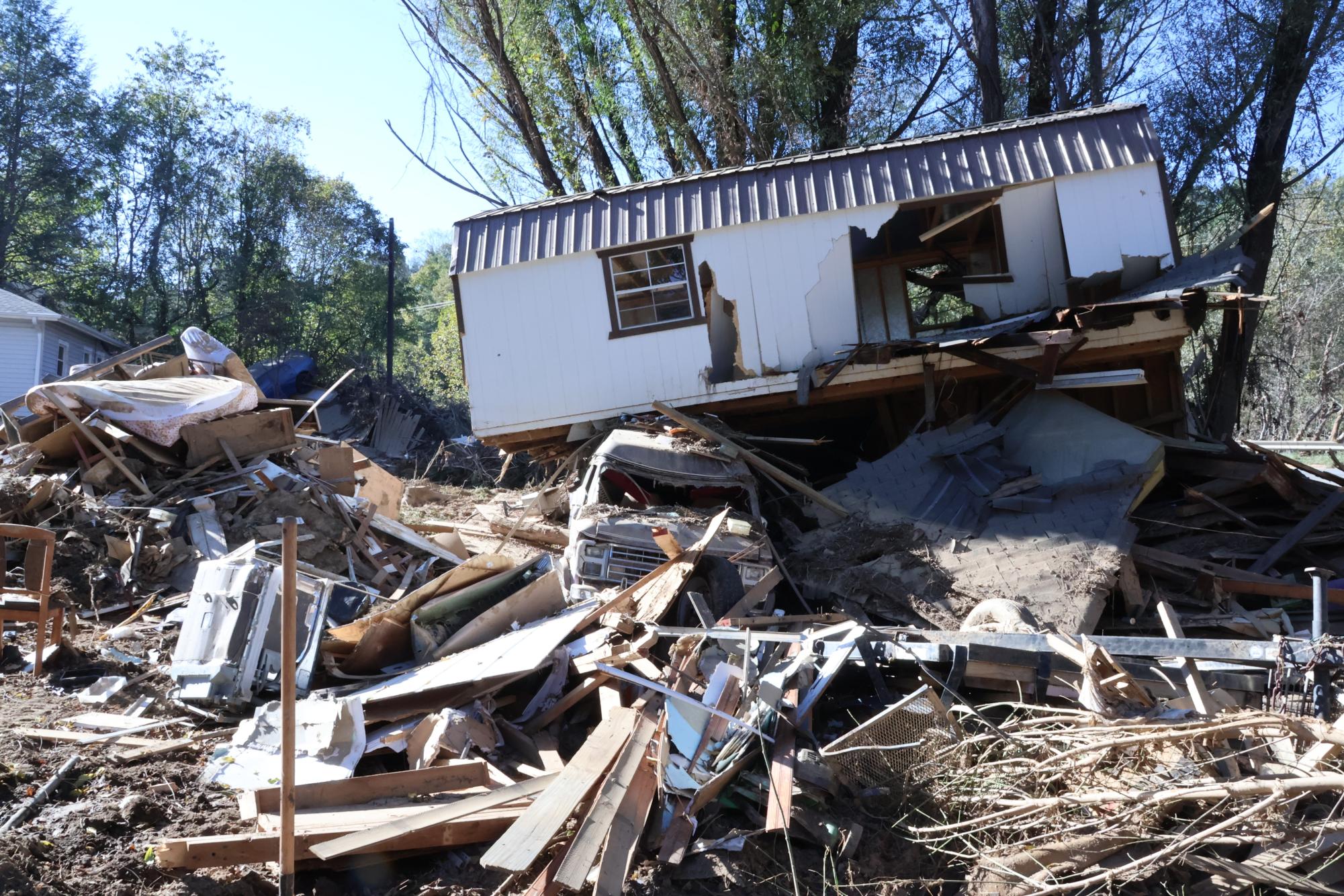
This experience also reminded me of how greatly God has blessed me, especially regarding my possessions. Losing power for three days was not enjoyable, but it is nothing compared to the losses that other victims of the hurricane have sustained.
Seeing the entirety of one’s material life sitting on a curb is a uniquely jarring experience. But it is a reminder of the brevity of life and the temporality of our possessions. Life’s meaning must be found in the eternality of the loving God who controls all of life, both in the calm and the storms.





















































